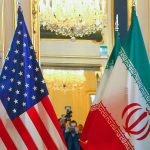
First Round of Iran-U.S. Talks: Cautious Optimism
13.04.2025
Iran-Germany Trade Report – First Two Months of 2025
21.04.2025Reaction of German Media to the Recent Iran–U.S. Talks
German media have widely covered the recent talks between Iran and the United States, which took place on April 12, 2025, in Muscat, Oman.
They described the negotiations as a significant step toward de-escalating the growing tensions between Tehran and Washington. Reports emphasized that in light of Trump’s recent threats, these talks could serve as a path to preventing further escalation. The German media also noted that the outcomes of these negotiations could have far-reaching effects on regional order.
German media outlets covering the Iran–U.S. talks:
Der Spiegel
Der Spiegel described the Muscat talks as a sign of “the reopening of diplomatic channels” after years of tension. However, it stressed that deep mutual distrust remains a major obstacle to progress. The publication also highlighted how different Biden’s policies have been from Trump’s—and that Trump’s return has now reset everything to square one.
Frankfurter Allgemeine Zeitung (FAZ)
FAZ focused on Oman’s traditional role as a neutral mediator in Middle Eastern conflicts, viewing the simultaneous presence of security and diplomatic figures as a sign of the issue’s importance. It also suggested that Trump’s engagement in this dialogue may be aimed more at pressuring Europe than genuinely seeking an agreement.
Süddeutsche Zeitung (SZ)
SZ described the atmosphere of the talks as cold and cautious, noting that the Iranian side considers any agreement conditional on the lifting of sanctions and an end to military pressure. According to the paper, Trump’s return has not created a positive psychological environment for dialogue, and both parties appear more interested in “crisis management” than a comprehensive resolution.
Tagesschau (ARD)
Tagesschau included direct quotes from Iranian and American officials, reporting that while the talks were formal and constructive, no agreement has been reached yet. The outlet also noted that the continuation of the process depends on developments in the coming weeks and the stance of the U.S. Congress.
Deutsche Welle
Deutsche Welle, especially in its international editions, focused on the potential impact of the talks on the Persian Gulf region and the oil market. It described the negotiations as an attempt to prevent the expansion of military conflict and analyzed that Iran is seeking to buy time, while the U.S. aims to contain tensions quickly.
